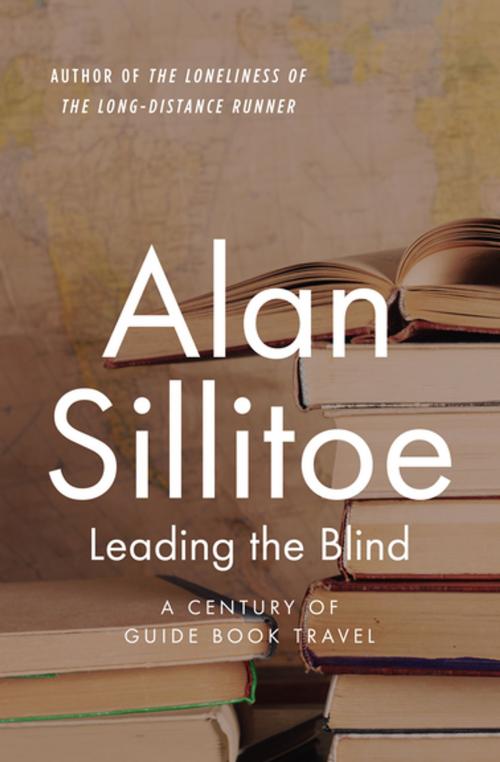Leading the Blind
A Century of Guide Book Travel
Nonfiction, Travel, Asia, Adventure & Literary Travel, Europe| Author: | Alan Sillitoe | ISBN: | 9781504035002 |
| Publisher: | Open Road Media | Publication: | July 12, 2016 |
| Imprint: | Open Road Media | Language: | English |
| Author: | Alan Sillitoe |
| ISBN: | 9781504035002 |
| Publisher: | Open Road Media |
| Publication: | July 12, 2016 |
| Imprint: | Open Road Media |
| Language: | English |
A journey into nineteenth-century travel guides to the UK, Europe, and Soviet Union as researched and written by one of England’s most distinguished authors.
In this quirky and illuminating social history, bestselling British author Alan Sillitoe culls fascinating details from Victorian-era guidebooks and travelogues in order to recount the pleasures, dangers, traps, and delights of travel in the century leading up to World War I. For instance, in Switzerland, an English officer once fell into a bears’ den and was “torn in pieces.” In Paris, the outdoor seating at cafés was in “unpleasant proximity to the gutters.” In Germany and the Rhine, the denominations marked on coins did not necessarily indicate their value. And in Northern Italy, a traveler could look forward to a paradise of citron and myrtle, palms and cyclamen.
For the armchair traveler journeying into a bygone era, Sillitoe begins with the essential practicalities relevant to any tourist: the price of passports and visas, how best to clear customs, and how many bags to pack. He includes timeless advice, such as: Board a boat on an empty stomach if you are prone to seasickness, and always break in your boots before embarking on a trip. Anachronistic recommendations abound as well: It is best to leave your servant at home, carry your milk with you when traveling to small Italian villages, and not pay children and “donkey women” for flowers.
From convalescent hotels in the South of France to malaria-ridden marshes between Rome and Naples, and from the chaos of Sicily and southern Italy to the dazzling bullfights and rampant thieves of sunny Spain, Sillitoe guides readers through the minutiae of the Mediterranean with wit and historical insight. Then he takes an anecdote-filled road east into Greece, Egypt, the Holy Lands, Turkey, and Russia. Of course, the Grand Tour would not be complete without a thorough account of his home turf of England, with her idiosyncratic hamlets, smoke-filled skies, and working-class townsfolk in high-buckled shoes.
At once a fascinating history of travel books from 1815 to 1914 and an entertaining ode to wanderlust, Leading the Blind brings to life the absurd and profound wonders of Victorian globetrotting. With simple but captivating prose, Sillitoe also shows how the way we view foreign lands can reveal a lot about what is happening at home.
A journey into nineteenth-century travel guides to the UK, Europe, and Soviet Union as researched and written by one of England’s most distinguished authors.
In this quirky and illuminating social history, bestselling British author Alan Sillitoe culls fascinating details from Victorian-era guidebooks and travelogues in order to recount the pleasures, dangers, traps, and delights of travel in the century leading up to World War I. For instance, in Switzerland, an English officer once fell into a bears’ den and was “torn in pieces.” In Paris, the outdoor seating at cafés was in “unpleasant proximity to the gutters.” In Germany and the Rhine, the denominations marked on coins did not necessarily indicate their value. And in Northern Italy, a traveler could look forward to a paradise of citron and myrtle, palms and cyclamen.
For the armchair traveler journeying into a bygone era, Sillitoe begins with the essential practicalities relevant to any tourist: the price of passports and visas, how best to clear customs, and how many bags to pack. He includes timeless advice, such as: Board a boat on an empty stomach if you are prone to seasickness, and always break in your boots before embarking on a trip. Anachronistic recommendations abound as well: It is best to leave your servant at home, carry your milk with you when traveling to small Italian villages, and not pay children and “donkey women” for flowers.
From convalescent hotels in the South of France to malaria-ridden marshes between Rome and Naples, and from the chaos of Sicily and southern Italy to the dazzling bullfights and rampant thieves of sunny Spain, Sillitoe guides readers through the minutiae of the Mediterranean with wit and historical insight. Then he takes an anecdote-filled road east into Greece, Egypt, the Holy Lands, Turkey, and Russia. Of course, the Grand Tour would not be complete without a thorough account of his home turf of England, with her idiosyncratic hamlets, smoke-filled skies, and working-class townsfolk in high-buckled shoes.
At once a fascinating history of travel books from 1815 to 1914 and an entertaining ode to wanderlust, Leading the Blind brings to life the absurd and profound wonders of Victorian globetrotting. With simple but captivating prose, Sillitoe also shows how the way we view foreign lands can reveal a lot about what is happening at home.















